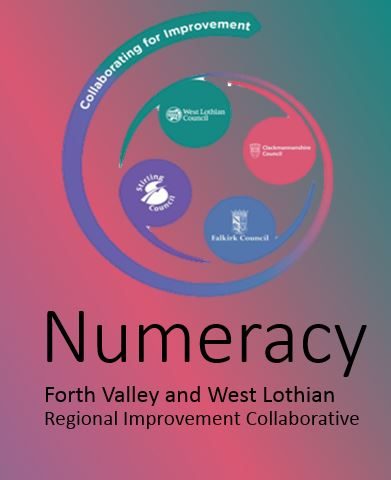Numeracy Hub Champions across the Forth Valley and West Lothian Regional Improvement Collaborative will directly support practitioners to develop their knowledge, understanding and application of research informed pedagogy which is proven to improve outcomes for children and young people. In addition, an inter-authority, teacher driven, professional network in First Level Numeracy will be established.
Research Informed Pedagogy
Manipulatives
Manipulatives can be key in providing effective, active, engaging lessons in the teaching of mathematics. To gain a deep understanding of mathematical ideas, children need to be able to integrate and connect a variety of concepts in many different ways. The effective use of manipulatives can help children connect ideas and integrate their knowledge so that they gain a deep understanding of mathematical concepts.
Over the past four decades, studies done at all different levels and in several different countries indicate that mathematics achievement increases when manipulatives are put to good use (Canny, 1984; Clements and Battista, 1990; Clements, 1999; Dienes, 1960; Driscoll, 1981; Fennema, 1972, 1973; Skemp, 1987; Sugiyama, 1987; Suydam, 1984).
The numeracy group believes that teachers need to learn how to successfully use manipulatives in the maths classroom and encourage student exploration, related discussion, and reflection about the prospective concepts being taught. Practitioners need to be knowledgeable with children’s exploration of the math concepts and not assume that when children use manipulatives they will automatically draw the correct conclusions from them.
The numeracy group believes that learning, teaching and assessment and the quality of what goes on in classrooms is core to this work stream and will therefore need to provide CLPL that supports practitioners in this area.
Embedded Classroom Model
The Embedded Classroom Model is based on the principals of developing a culture of collaboration and collective responsibility in schools. It involves teachers working in a spirit of openness and critical reflection, sharing their experiences, ideas and expertise with each other and engaging in an ongoing process of inquiry that promotes deep team learning. The work of teams is guided by a clear and systematic model of problem-solving and learning, one that encompasses a learning → application → refinement → application cycle.


